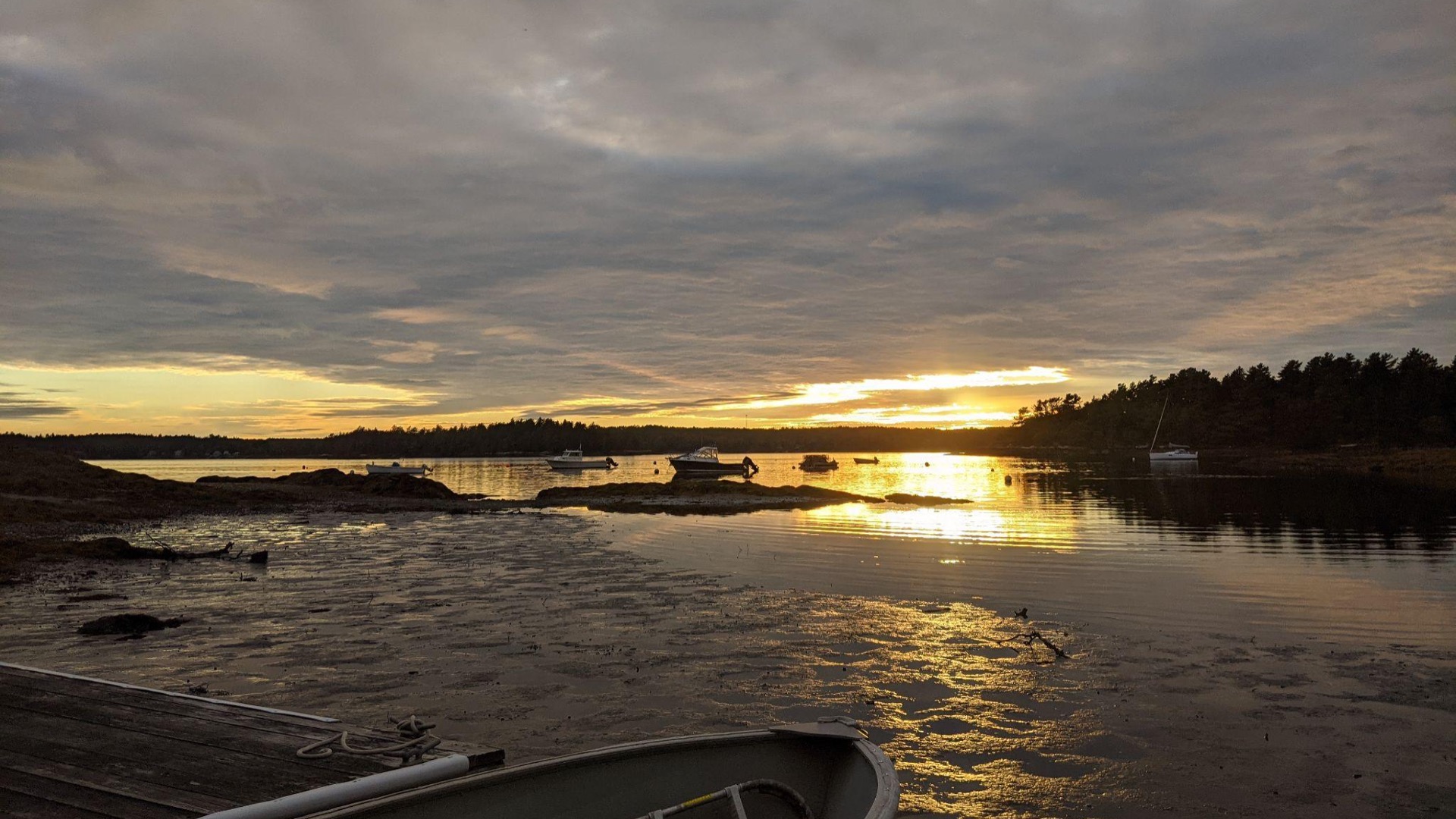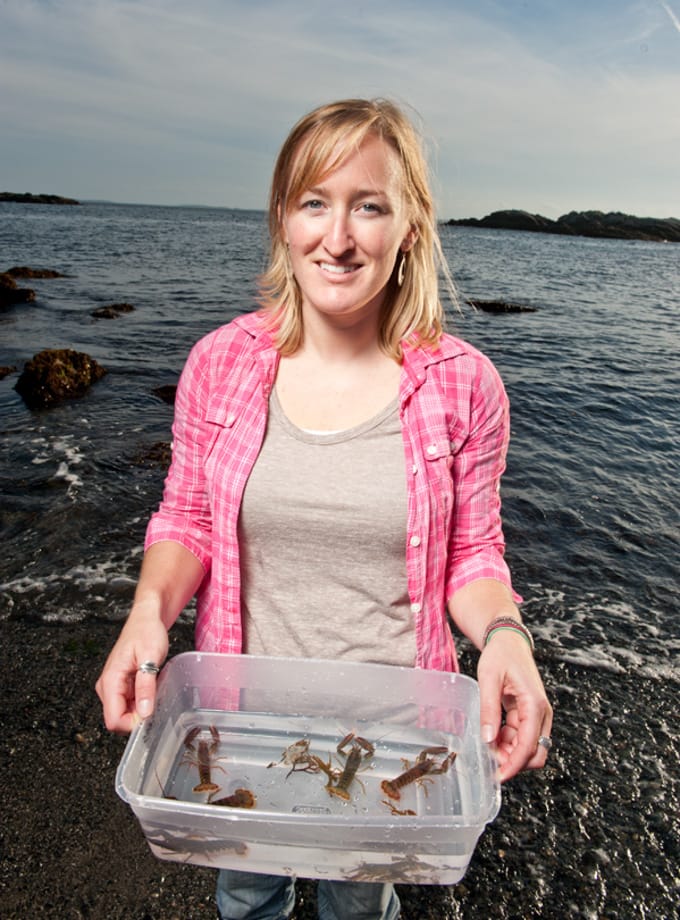
Dr. Marissa McMahan
Senior Director of Fisheries
Shellfish have immense cultural, social, ecological, and economic importance for coastal communities and have been harvested and stewarded by the Wabanaki people (the collective name for the four Maine Indian tribes: the Maliseet, Micmac, Penobscot, and Passamaquoddy) for thousands of years. In Maine, shellfisheries are co-managed between towns and the state, and commercial harvesters play a vital role in stewarding and sustaining mudflat ecosystems.
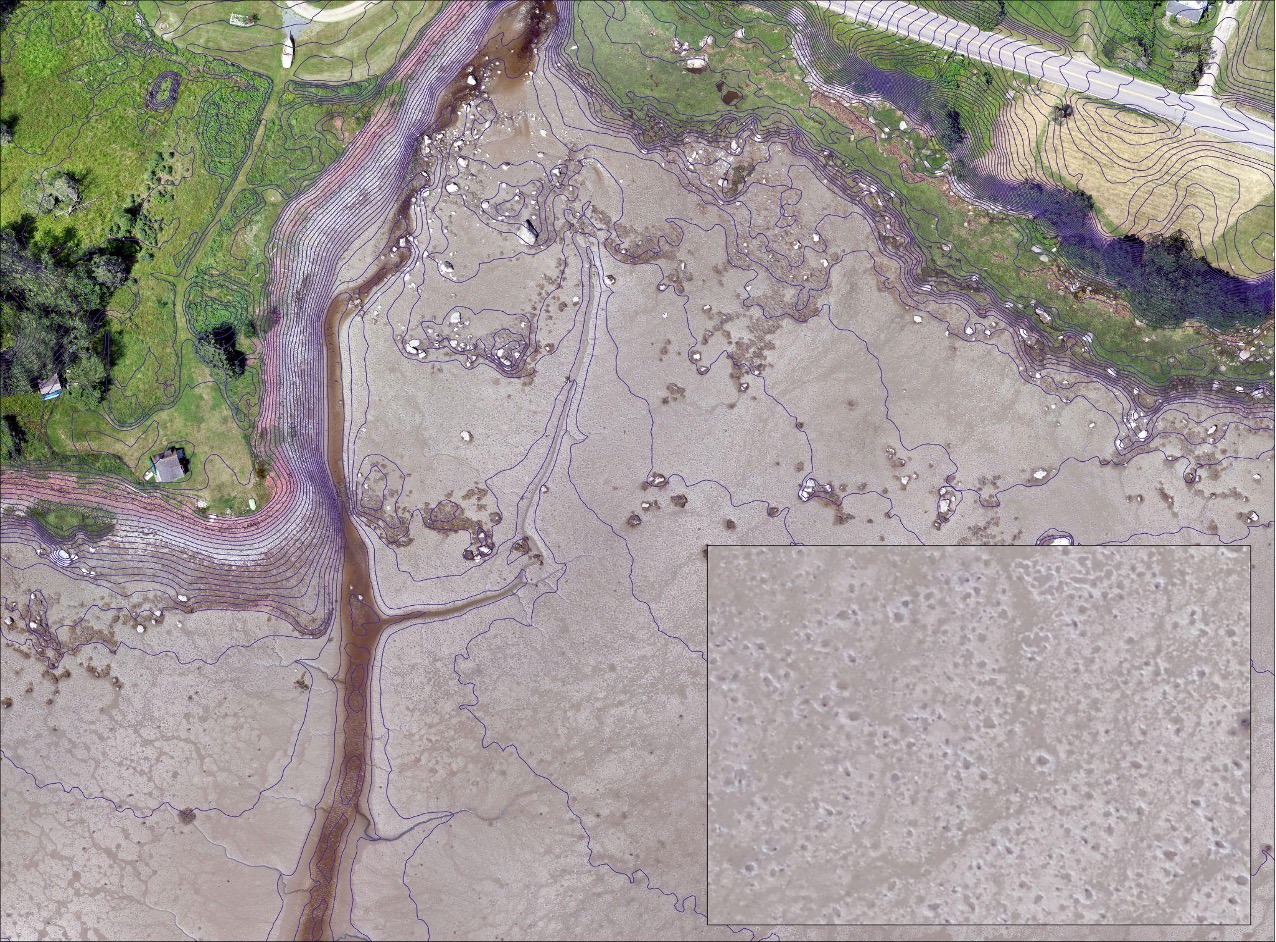
These intertidal ecosystems are experiencing significant change due to a number of factors: invasive green crab predation, as well as warming waters, sea level rise, and increased storm activity due to climate change. The high cost of real estate along the Maine coast is also having an impact on how much (or how little) of the mudflats are accessible to shellfish harvesters. The shellfish fishery is the second most valuable in Maine, so loss of intertidal habitat presents a significant socioeconomic risk.
The Manomet fisheries team has been busy conducting participatory mapping with shellfish harvesters to document their knowledge of how mudflat ecosystems and shellfish resources are changing. This participatory mapping process includes: conducting interviews with harvesters and marking significant locations on a map; transcribing and coding interviews; pulling out spatial data based on harvester observations. Harvesters are asked for their observations and input: physical changes to mudflats over time, and how any of those changes have affected their shellfishing practices.
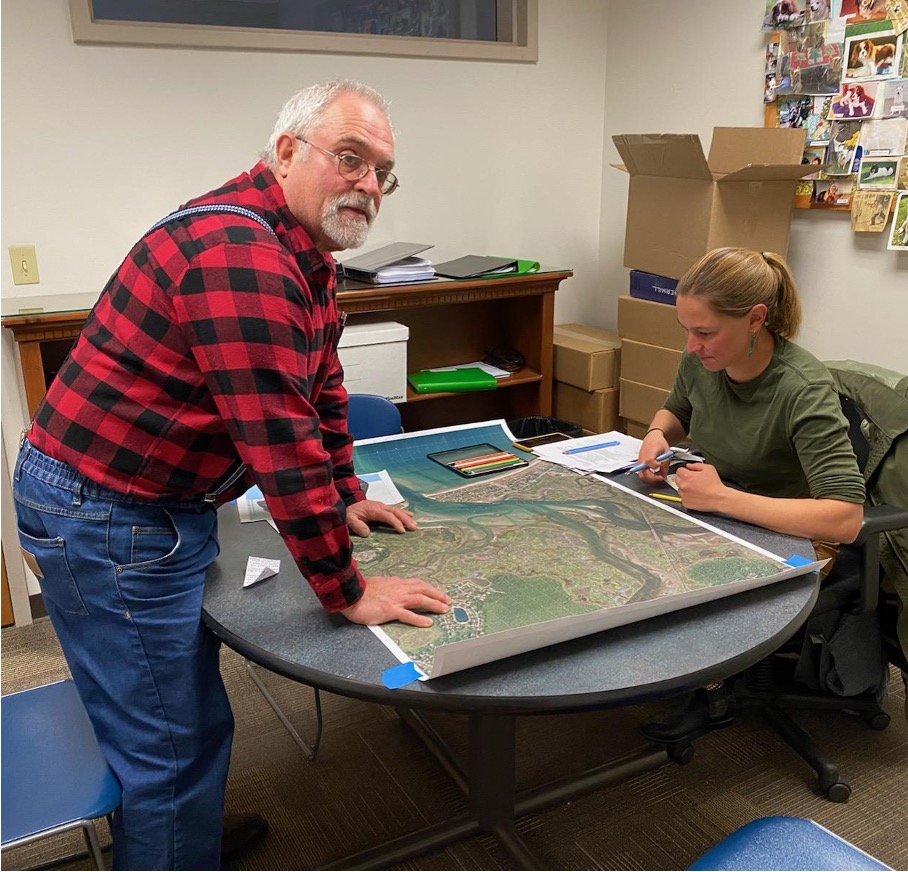
The knowledge is informing our work with coastal communities on planning and preparing for sea level rise impacts to mudflats. The partnership between the Manomet fisheries team and shellfish harvesters is essential in tackling the various challenges facing Maine’s intertidal ecosystems. By combining local expertise with scientific research, these efforts aim to protect the cultural, economic, and ecological resiliency of the region.
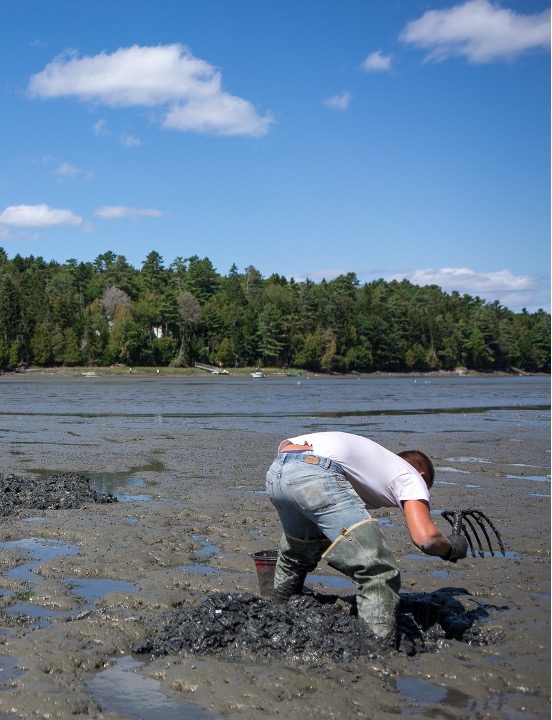





 Back to all
Back to all